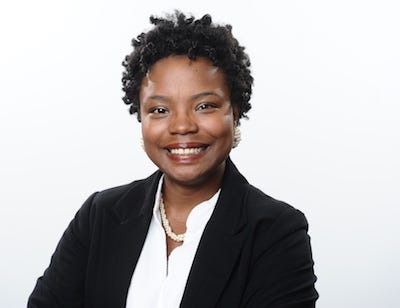The lack of racial and gender diversity across the technology pipeline is a persistent challenge across the tech ecosystem, with women and underrepresented people of color underrepresented in computing education and the workforce. To remain competitive in the global technology economy, the nation must develop a robust future technology workforce, build companies with diverse talent to enhance innovation, foster inclusive work environments to retain diverse talent, and address growing wealth inequality.
A Strategy for Change Through Research
The Research Team at the Kapor Center for Social Impact aims to use research and data to inform the design and implementation of strategies, practices, and policies to diversify the technology and entrepreneurship ecosystem.
With support from the Ford Foundation, the Kapor Center proudly announces the launch of the Grants for Research on Inclusive Tech (GRIT) program. This research grant program aims to increase understanding of barriers to participation and lead to the design and evaluation of evidence-based solutions to reduce barriers throughout the technology ecosystem, from K-12 education through entrepreneurship and venture capital. The program funds innovative research projects that examine interventions to reduce bias and barriers throughout the tech ecosystem, with priority funding areas including:
- Increasing participation of women and girls of color in computer science education;
- Broadening participation in the tech workforce;
- Enhancing equitable entrepreneurship and venture capital
2017–18 GRIT Projects and Awardees
We are pleased to announce the first cohort of GRIT awardees, who are exploring a variety of research projects examining different contexts, barriers, and interventions. The 2017–18 awardees will share initial findings during the upcoming event: Disrupting Bias: Evidence-based Solutions to Increase Diversity in Tech in order to disseminate actionable strategies to enhance diversity and inclusion in the technology ecosystem.
K-12/Higher Education Projects:
Dr. Victoria Plaut, University of California, Berkeley. Mitigating the Double Bind in Computer Science: A Sociocultural Narrative Intervention. $20,000

Dr. Plaut’s research examines the efficacy of an intervention aiming to address the physical environment and sociocultural/psychological messages and processes that may interfere with the long-term computer science engagement of girls of color. This research investigates the impact of integrating narratives about families and culture on girls’ self-concept, interest in computer science, effort, and academic outcomes.
Dr. Tia Madkins, Notre Dame University/University of Texas, Austin. Mitigating the Double Bind in Computer Science: A Culturally Relevant Computing Approach. $10,000

Dr. Madkins’ research examines the student experiences and outcomes associated with the implementation of culturally relevant computing pedagogy within computer science courses in the Summer Math & Science Honors Academy. Dr. Madkins’ analysis examines student reactions to and engagement with culturally relevant computing instruction, with a focus on girls of color and their instructors.
Dr. Colleen Lewis, Harvey Mudd College. Understanding Underrepresented Students’ Perceptions of their Fit with Computer Science. $10,000

Dr. Lewis’ research examines underrepresented high school students’ perceptions of computing, computer scientists, and motivations to participate and persist in computer science. The analysis aims to inform interventions to shape the computing interest, confidence, self-efficacy, and aspirations of underrepresented students, particularly girls of color.
Tech Workforce/Entrepreneurship Projects:
Dr. Rodolfo Mendoza-Denton, University of California, Berkeley. Mitigating Bias in Hiring: How does the Masking of Race, Gender, and Moral Licensing Affect Hiring Decisions? $15,000

Dr. Mendoza-Denton’s research explores the extent to which moral licensing impacts hiring decisions, and can affect gender and racial diversity in hiring. This research is particularly interested in understanding whether gender diversity can prevent efforts to expand/enhance racial diversity and whether after hiring diverse candidates on one axis of identity (e.g., gender), hiring professionals are less likely to hire diverse candidates on another axis of identity (e.g. race).
Dr. Fallon Wilson, CEO and Co-Founder, Black in Tech Nashville. 1st Generation African-American Students and Social Service-Based Tech Careers. $15,000

Dr. Wilson’s research aims to develop a foundation of knowledge on ways to creating alternative pathways into tech careers among African-American college students interested in social science careers. Specifically, Dr. Wilson is examining the ways in which social worker training programs are shifting to include public interest technology careers, and how this presents an opportunity to increase participation of diverse student populations.
Dr. Alberto Roca, Executive Director, DiverseScholar. Open Source Skills Training of the Black and Latino Tech Workforce. $15,000

Dr. Roca’s research examines experiences of underrepresented professionals in open source software communities and explores interventions to enhance their equitable participation in tech careers. Dr. Roca’s project includes both a survey study on barriers to participation in OSS as well as an examination of open source software trainings for underrepresented computer science students.
Dr. Leshell Hatley, Coppin State University. Equitable Entrepreneurship and Venture Capital. $15,000

Dr. Hatley’s research investigates the efficacy and impact of an intervention that assists underrepresented professionals in becoming technology founders and leaders. Dr. Hatley’s project also explores how underrepresented founders experience identity shifts as they navigate successes and obstacles in developing tech startups.
Looking Ahead: 2018
In Spring 2018, we will iterate on our first round of grant funding and build out the 2018–19 priority areas based on lessons learned from the current research portfolio and additional areas for exploration identified in our upcoming convening.
We will launch another Request for Proposals for another round of grant funding in 2018 and we look forward to continuing to support research for action and change (RFP is forthcoming).
Please feel free to contact us with ideas for strengthening the research portfolio on strategies to enhance diversity in tech.

